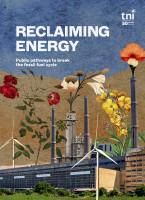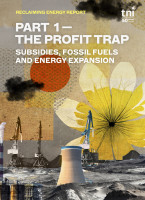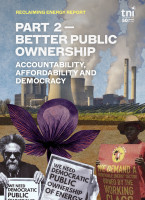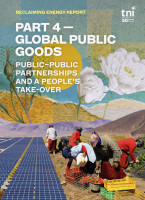Reclaiming Energy Report: Part 3 - Beyond the State Decolonisation, Just Transition and Energy Democracy
Publication date:
40
minutes read
Discover how grassroots movements are reclaiming energy systems from state and corporate control. From decolonizing energy to Indigenous democracy and land justice, Part 3 explores initiatives shaping a just, equitable, and socially-driven energy transition worldwide.
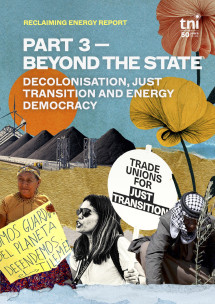
Downloads
Reclaiming Energy Report: Part 3 - Beyond the State
(PDF, 6.33 MB)
Average time to read: 40 minutes


